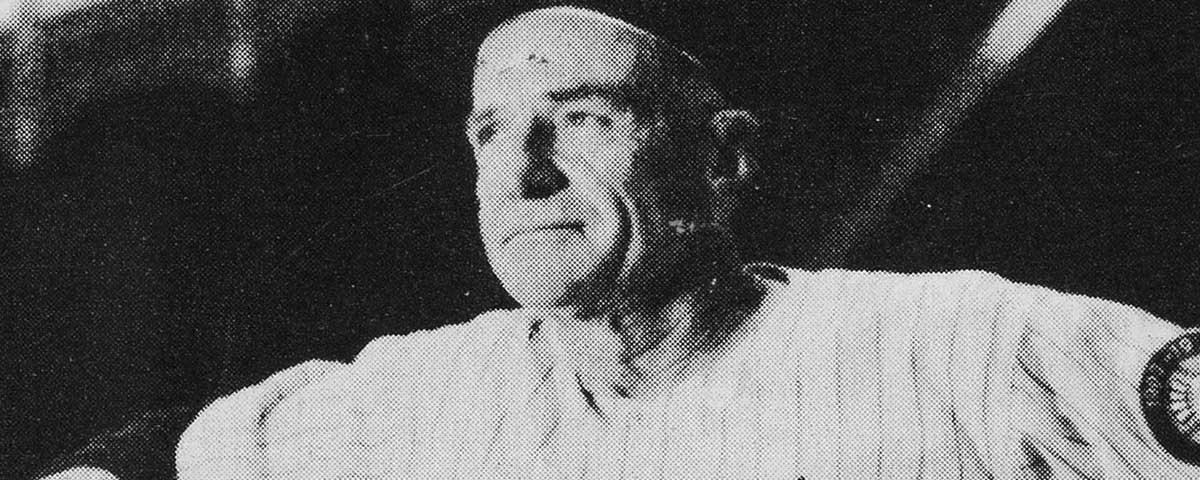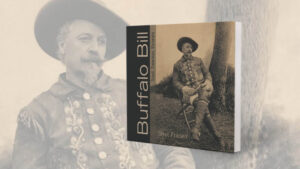Dodging questions is an art on Capitol Hill, where politicians routinely avoid answering uncomfortable queries by using various time-honored evasive tactics, including changing the subject, telling an irrelevant anecdote or uttering vague verbiage that leaves listeners befuddled. But nobody has ever dodged questions more entertainingly than Casey Stengel did on July 9, 1958, when he testified before the Senate Anti-Trust and Monopoly Subcommittee.
Why was Stengel—the delightfully colorful manager of the New York Yankees with no discernible expertise in antitrust issues—summoned to testify on antitrust legislation?
As a publicity stunt, of course.
Senator Estes Kefauver, the subcommittee chairman, was a publicity genius. He became famous in 1950 by subpoenaing gangsters to testify at hearings on organized crime. The hearings became TV sensations and Kefauver became the Democratic vice-presidential nominee in 1956. After that, he longed to be president and coveted more free TV coverage. So when he learned that baseball’s All-Star game would be played in Baltimore, only an hour from Capitol Hill, he summoned Stengel, Yankee slugger Mickey Mantle and other All-Stars to enlighten his subcommittee about a pending bill to exempt professional sports from antitrust regulations.
His scheme worked perfectly. The hearing was packed with baseball fans and—more important to Kefauver—reporters, photographers and TV cameras. The chairman called Casey to the stand.
“Mr. Stengel, you are the manager of the New York Yankees,” Kefauver said. “Will you give us very briefly your background and views about this legislation?”
Very briefly? As sportswriters could have told Kefauver, Casey Stengel seldom spoke briefly about anything.
“Well, I started in professional ball in 1910,” said Stengel, 70, and then he proceeded to ramble on about his 48-year baseball career in his own personal patois known as “Stengelese.”
“I had many years that I was not so successful as a ballplayer, as it is a game of skill,” he said, drawing the first of many laughs. “And then I was no doubt discharged by baseball, in which I had to go back to the minor leagues as a manager. I became a major league manager in several cities and was discharged. We call it discharged because there was no question I had to leave.”
That got another laugh, and Casey kept rolling, revealing that he and his Yankees won so many pennants because “we have the spirit of 1776” and that he’d gone into baseball to earn money for dental school but found that baseball paid better than drilling teeth.
“Any other questions you would like to ask me?”
Kefauver did have another question: “Mr. Stengel, are you prepared to answer why baseball wants this bill passed?”
“Well, I would say at the present time, I think that baseball has advanced in this respect for the player help,” Casey replied. “That is an amazing statement for me to make because you can retire with an annuity at 50, and what organization in America allows you to retire at 50 and receive money?”
Casey launched into a long monologue on the players’ retirement fund, lamenting that, as a manager, he was not eligible. Then he discoursed on the high cost of taking a baseball team on the road and noted that, although fans of rival teams hated the Yankees, they eagerly paid money to come out and boo them.
“Mr. Stengel,” said Kefauver, “I am not sure I made my question clear.”
That got a laugh from the 300 people stuffed into the room.
“Well, that is all right,” Casey replied. “I am not sure I am going to answer yours perfectly either.”
That got a laugh, too.
“I was asking you, sir,” Kefauver said, “why is it that baseball wants this bill passed?”
“I would say I would not know,” Casey answered, “but would say the reason why they would want it passed is to keep baseball going as the highest paid ball sport that has gone into baseball, and from the baseball angle. I am not going to speak of any other sport. I am not here to argue about any other sports, I am in the baseball business. It has been run cleaner than any other business that was ever put out in the 100 years at the present time.”
Huh? What? Kefauver, whose previous interrogations had terrified murderers and racketeers, realized that he couldn’t touch Stengel’s verbal knuckleballs. He called on other senators to pinch hit.
Senator Joseph O’Mahoney of Wyoming stepped up to the plate. “How many major league teams were there in the United States when you entered baseball?”
“Well, that was in 1910,” Casey said. “There were 16 major league baseball teams.”
“How many are there now?”
“There are 16 major league clubs.”
Now O’Mahoney was getting to the point: Despite the huge increase in America’s population, the number of teams remained the same—a fact that caused critics to suggest baseball’s owners were acting as a monopoly and restricting competition.
“Is that a correct summary?” he asked
“Well, you have that from the standpoint of what you have been reading,” Casey said. “You have got that down very good. But if you were a player…”
“I am trying to get it down from your standpoint as a 48-year man in baseball,” O’Mahoney said.
“That’s why I’ve stayed in it,” Casey said. “I have been discharged 15 times and rehired. So you get rehired in baseball, and they don’t want a good ballplayer leaving. And I always say a high-priced baseball player should get a high salary just like a moving-picture actor. He should not get the same thing as the 25th man on a ballclub who is very fortunate he is sitting on your ballclub. And I say it is very hard to have skill in baseball.”
“You are not changing the subject, are you, sir?” O’Mahoney asked.
The audience laughed. Of course Casey was changing the subject. The more interesting question was: Why? Was he deliberately trying to avoid a controversial topic? Or was Casey merely exhibiting the invention of a unique mind that naturally tended to flutter from subject to subject like a butterfly in a flower garden? It’s a question that still baffles baseball fans who manage to make their way through the transcript of Stengel’s surreal 7,000-word testimony.
“Mr. Chairman,” O’Mahoney said, “I think the witness is the best entertainment we have had around here for a long time and it is a great temptation to keep asking him questions but I think I better desist.”
Several other senators went to bat but they, too, struck out, flummoxed by the intricacies of Stengelese. Finally, Kefauver dismissed Stengel and called the next witness—Mickey Mantle, the Yankees’ star outfielder. Mantle was sitting behind Stengel, visibly dozing as his manager testified, perhaps owing to his excessive celebration after the American League’s 4-3 victory in the previous day’s All-Star game.
“Mr. Mantle,” said Kefauver, “do you have any observations with reference to the applicability of the anti-trust laws to baseball?”
“My views are just about the same as Casey’s,” Mantle replied, and the audience roared with laughter.





